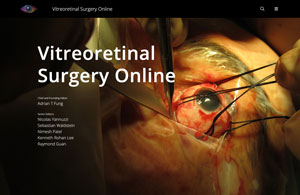11 Examination Preparation
11.1 The Philosophy of Exit Examinations
Up to this point in your academic and medical career, most examinations you have undertaken have been held regularly on specific topics; for example, anatomy, physiology, optics and pathology. In these exams, there is usually a core set of readings which can be supplemented as required. It is expected that you have a period of intense preparation for the exam, and as such the knowledge you demonstrate in these examinations far exceeds that of a general practicing ophthalmologist, who would score poorly if they took the examination without preparation. For example, you may be asked about the physiology of aqueous humour production and be expected to demonstrate knowledge and understanding that few general ophthalmologists would be able to recall.
Fellowship exit examinations are different. The closest example of an exam like of this sort is probably your final medical school examinations. Exit examinations test your wisdom – knowledge tempered by experience. It is primarily your application of the knowledge that you have developed over the years of your ophthalmology training that will be tested. Once you pass the exam, it will surprise you how little detailed knowledge gained from intensive study is actually required to pass. Moreover, a practicing general ophthalmologist would, without specific preparation, likely score better on the examination that an average candidate.
What is being tested in this exam is your ability to assess and manage patients safely and independently. You must approach all aspects of the exit examination as a consultant (attending) general ophthalmologist. Decisions regarding diagnosis and management cannot be deferred or deflected, and anything missed will not be picked up by another member of the team. Examiners want your management plan with justification, not just options. Responsibility for the patients you see is yours, and yours alone. If you are not ready to accept this you are not ready for the examination, or indeed independent practice.
You do not need to have subspecialist experience and expertise in all areas. That is impossible. Patients in the exam can be “referred” for management of subspecialist level conditions to appropriate colleagues – indeed this is expected. However, you must be able to triage patients appropriately, articulate how you want the subspecialist to assist, and explain to the patient what is likely to be done. Remember to pay attention to the patient as a whole, rather than just the eyes. Management of systemic conditions and incorporating information about the patients’ occupation, hobbies, driving habits and other responsibilities is critical to success.
With all this in mind, it is impossible to prepare fully and perfectly for this examination. There will always be things you do not know. This exam is testing whether your current level of knowledge is sufficient to safely and independently manage the general ophthalmic patient.
Good luck!
Previous
10.2 Keratometer
All rights reserved. No part of this publication which includes all images and diagrams may be reproduced, distributed, or transmitted in any form or by any means, including photocopying, recording, or other electronic or mechanical methods, without the prior written permission of the authors, except in the case of brief quotations embodied in critical reviews and certain other noncommercial uses permitted by copyright law.
Vitreoretinal Surgery Online
This open-source textbook provides step-by-step instructions for the full spectrum of vitreoretinal surgical procedures. An international collaboration from over 90 authors worldwide, this text is rich in high quality videos and illustrations.
